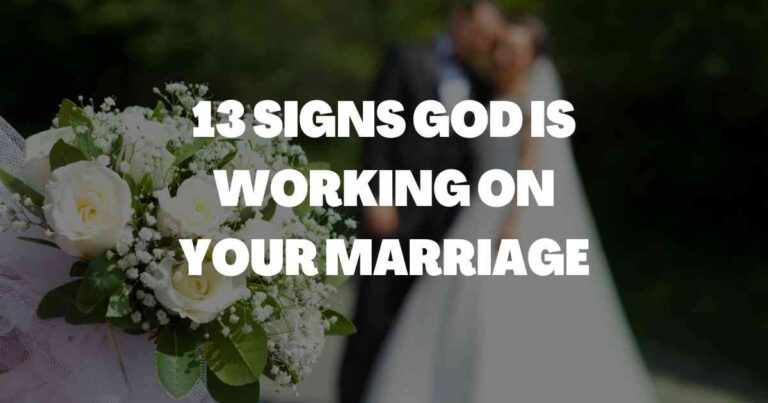How Does Depression Affect Relationships and What You Can Do
How Does Depression Affect Relationships: Living with depression may influence your relationships with family and friends. However, there are methods to engage with others while controlling your illness.
Living with depression comes with challenges, including overcoming barriers to nourish and maintain meaningful relationships.
According to a 2023 study, couples indicated that depression negatively influenced their romantic relationships in the following ways:
- emotional toll
- romance and sexual intimacy
- communication
- isolation
- lack of energy/motivation
- dependence on the relationship
- lack of understanding
- uncertainty
Furthermore, the study discovered that participants’ perceptions of how depression affected their relationship differed depending on their and their partner’s depression status.
Contents
What difficulties can depression cause in relationships?
Whether you live with depression or are in a relationship or friendship with someone who does, the condition can impact your relationship in various ways.
Romantic relationships
According to Sarah Rattray, PhD, couples psychologist and founder of Couples Communication Institute, many depression symptoms, such as fatigue, low energy, loss of interest in activities, and irritability, complicate everything in a relationship.
“It’s easy to feel pushed away from your partner rather than drawn closer.” Relationships require energy and goodwill to maintain well, which can be challenging to find when you’re [going through episodes of depression],” Rattray tells Psych Central.
Nothing seems appealing during a depressive episode, and you may lack energy or interest in doing anything with your partner. As a result, when your partner requests something, it may feel like a challenge, a burden, or even an annoyance.
“Sexual interest fades from time to time.” You might want to withdraw into yourself and not share your feelings with your partner. “Asking for help can be difficult when you feel worthless or guilty about how you’re feeling,” says Rattray.
Other relationships
During depressed periods, you may be less interested in spending time with friends and loved ones and find it difficult to engage at work.
“You may feel like declining invites and withdrawing from those you care about… “Activities that may have interested you in the past often no longer sound appealing, or the effort required to participate feels like it would require more energy than you can muster,” Rattray adds.
Tips on minimizing adverse effects of depression on relationships
While it is not simple, the following strategies can improve your relationships.
Romantic relationships
Understand your depression
According to Rattray, depression is a sign of a variety of imbalances.
“It’s like a red warning light on your dashboard — it’s time to figure out what the warning is trying to tell you,” she explains.
Rattray proposes investigating:
- Sleep patterns
- Food quality levels of stress
- Exercise routines
- hormone imbalances the effects of head or spine traumas infections such as viruses, germs, parasites, or mould
“Antidepressant medication should not be the first choice until you’ve worked on determining what threw you off balance in the first place,” she adds.
Open up to your partner.
Inform your companion about your mental health status.
“You’re going to have to stop the internal dialogue — part of you will say that you don’t want to burden your partner or that you’re too embarrassed.” “Permit the other part of you that loves and values your partner and your relationship to communicate with your partner,” Rattray adds.
She advises picking a time of day when you have the most energy and informing your spouse that you need them to listen while you express what’s going on.
Ask for what you need.
Asking your partner for assistance might help you stay connected.
“Far from being a burden, most partners are grateful to be able to help their loved one,” Rattray adds.
While your spouse may make some recommendations, you may be inclined to reject them altogether. However, providing them with the options that appear most likely for you is a fantastic approach to keep the channels of communication open.
“If a suggestion sounds somewhat appealing but also too difficult, let your partner know what kind of assistance you’d need to make it happen,” Rattray advises.
Set times to be together
Determine when and where your energy is at its peak, and plan activities together at those times.
“Prioritize together what would help you feel close and connected, and put those at the top of your list,” Rattray suggests.
For example, if you feel your best in the morning, plan on eating breakfast together or going for a morning stroll together a few times a week.
Avoid turning to substances.
Rather than using alcohol or cannabis to mask your emotions, it may be best to consult a mental health expert to help you identify the source of your depression and treat you properly.
Other relationships
Confide in trusted friends.
Determine which family members and friends you feel most comfortable expressing your issue, and tell them how you feel.
“Let trusted people know what you’re going through — the support and empathy will feel good,” Rattray suggests.
Say ‘no’
When you’re not feeling well, it’s OK to decline invites.
“Be ready to say ‘no’ to anything you cannot handle right now.” “If you don’t have the energy, interest, or ability to participate, take care of yourself and decline invitations or requests,” Rattray advises. “Depression is a symptom that you’re out of balance, and rest and reflection may be what you need, rather than guilt about not being able to do what you agreed to.”
Respond to invitations
While declining invitations is OK, rather than dismissing invitations to meals, parties, and gatherings, tell individuals you want to reconnect and be connected with them again. You’re still getting ready to get together just now.
“You can write a sample response and run it by a trusted person to make sure it sounds right,” Rattray suggests.
Something brief and considerate, such as “I value our friendship, and I hope to connect with you when I’m feeling better,” might demonstrate your concern.
Explain your actions
Rattray advises explaining your unusual behaviour to relatives and friends before or after you visit them.
“If you’re feeling irritable or down, be honest with your friends and loved ones and let them know you’re not feeling well,” she advises, rather than responding negatively without reason.
When to seek help
Taking steps to control your depression might be challenging at times.
“Consulting an individual or couples therapist, a naturopath, or a physician is a positive step towards health and growth, not a sign of or admission of failure.” “Everyone can benefit from having more tools in their toolbox, coping skills, and healthy habits,” Rattray adds. “You don’t have to wait until you’re in a bad mood to seek help for a better life.” Reach out for help if you notice you’re not feeling as you used to or want to.”
Are you or a loved one in crisis or considering suicide?
If you or someone you know is considering suicide or self-harm, help is available:
- Call the National Suicide Prevention Lifeline 24 hours a day at 800-273-8255.
- Text “HOME” to the Crisis Text Line at 741741.
- Not in the United States? Find a helpline in your country with Befrienders Worldwide.
- Call or visit your local emergency room or psychiatric care centre to speak with a mental health professional if it’s an emergency.
Looking ahead
While living with depression can make it difficult to maintain connections, there are strategies to stay connected to those you care about the most. Understanding and controlling your depression is an excellent approach to looking for yourself and maintaining healthy connections with others.
You and your loved ones may work together to deepen your link by communicating openly about your feelings, needs, and potential obstacles.
How does depression affect relationships?
Depression impacts relationships through emotional disconnection, communication barriers, trust issues, etc.
Can therapy help in restoring relationships affected by depression?
Yes, therapy can provide valuable insights and tools to mend relationships.
Is it common for depression to impact intimacy?
Yes, depression can lead to reduced sexual desire and intimacy issues.
How can friends and family support someone with depression?
By being empathetic, patient, and encouraging professional help.
What are the signs that depression is affecting a relationship?
Signs include withdrawal, lack of communication, trust issues, and emotional disconnection.
You might also like:
- The Tinder Hookup Game: 10 Tips For The Perfect Match
- How To Hookup On Tinder (A Woman’s Perspective)
- How to Save A Relationship: 18 Best Tips From Experts in 2023
- How To Make Him Miss You – The 5 Most Effective Tips
- 69 Romantic Date Night Ideas in Chicago
- 20 Things Not to Do When Traveling as a Couple
- 16 Romantic Valentine’s Day Getaway in the USA Ideas
- 35 Amazing Long-Distance Relationship Gifts For Couples
- 10 Adorable Valentine’s Day Date Ideas
- Where to Honeymoon in Europe: 23 Dreamy Honeymoon Destinations
- How To Be a Better Listener in a Relationship & Marriage
- 10 Best Practices for Dating As a Single Parent
- 20 Creative Ideas for Your Next Movie Date Night at Home
- 9 Things That Will Happen When You Meet the Right Person
- Relationship Advice for Couples: 14 Principles For Lasting Relationships
- 8 Ways To Avoid Losing Yourself In A Relationship
- 5 Tips On How To Parent Differently Than Your Parents
| Join Our Group For All Information And Update, Also Follow me For the Latest Information. | |
| YouTube | Click Here |
| Facebook Page | Click Here |
| Click Here | |
| Telegram | Click Here |
| Medium Profile | Click Here |
| Click Here | |
| Click Here | |
| My Pinterest | Click Here |
| Quora Profile | Click Here |
| Reddit Profile | Click Here |







